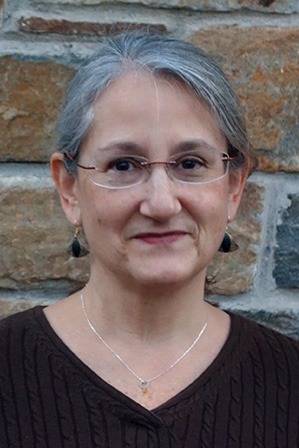Finding the Power Paradigm for Today
Letter from the Editor
BY SHAWN DORMAN

The United States emerged from the long era of the Cold War as the undisputed global superpower. It was called a “unipolar moment.” The subsequent decade of drift on the seas of what many referred to as the “New World Order” ended abruptly with the events of Sept. 11, 2001. Within weeks of 9/11, U.S. national security strategy and foreign policy were refocused, launching a new era: the “Global War on Terror.”
Fifteen years on, it became apparent that nonstate terrorists were not the only important actors on the international scene. The Obama administration’s 2015 National Military Strategy included a priority to work to defeat “potential state adversaries … challenging international norms.”
The Trump administration made the return of “great power competition” (GPC), acknowledged in 2015, the centerpiece of its 2017 National Security Strategy and 2018 National Defense Strategy. And by 2019, GPC was dominating the narrative.
Yet scholars, foreign policy experts and diplomats continue to debate whether GPC is an adequate construct for U.S. foreign policy and national security strategy. Can international relations be reduced to “competition”? What is the goal? What is the strategy?
The discussion involves not only how to characterize the current international environment but how to define the U.S. role within it. Is the United States “back at the table” as one of many “great” (and less great) powers, or does it seek to be, some say need to be, at the head of the global table?
This month’s edition explores aspects of current international dynamics through the lens of U.S. diplomacy—how the U.S. is, or should be, addressing central geopolitical issues.
We begin with what is certainly one of the most significant arenas for global competition and conflict today—cyberspace. U.S. Cyber Command strategist Emily O. Goldman (who has also served at the National Security Agency and in State’s Policy Planning Office) offers a particularly timely take on “Cyber Diplomacy for Strategic Competition.” She argues for a more proactive, anticipatory approach to cyber competition.
Robert S. Wang, a retired FSO now with the Center for Strategic and International Studies and Georgetown University, urges an unambiguous U.S. policy of support for Taiwan and its democracy in “Countering China’s Intimidation of Taiwan.”
Robert Griffiths, who lived and worked in China for 14 years, asks the provocative question: “Engagement with China: Was It a Mistake?”
Ambassador (ret.) Robert E. Hunter reviews the importance of the trans-Atlantic partnership in “Hello, Europe—America Is Back.”
Finally, two Senior FSOs, Alexis Ludwig and Ambassador Kelly Keiderling, offer contrasting takes on the concept of “Great Power Competition” and its utility today.
In the Feature, “Whatever Happened to Microfinance? A Cautionary Tale,” Thomas Dichter looks at how what was once a darling of development programs has done over time.
In the Education Supplement, education consultant Rebecca Grappo considers “The Impact of COVID-19 on FS Kids,” pointing to the unique challenges they have faced and offering recommendations for parents and for the State Department.
Recent changes in the Special Needs Education Allowance program are spotlighted in Family Liaison Office Education and Youth Director Charlotte Larsen’s interview with the staff of the Office of Child and Family Programs.
In Speaking Out, Ambassador (ret.) Edward Peck makes “The Case Against Political Ambassadors.”
FSO (ret.) Jonathan B. Rickert learns about the sensitivities of small countries in his Reflection, “The Mouse That Roared.”
In AFSA News, you’ll find photos and news of the expanded and renovated Memorial Plaques honoring members of the Foreign Service who died in the line of duty.
In April, the FSJ Editorial Board said goodbye to two wonderful members, Dinah Zeltser-Winant and Christopher Teal, who both brought insight, ideas and wisdom to our discussions. They will be missed. We were excited to welcome new members Jane Carpenter-Rock (State) and Bronwyn Llewellyn (USAID) in May.
Please keep in touch. Send responses to this issue, and new submissions, to journal@afsa.org.

